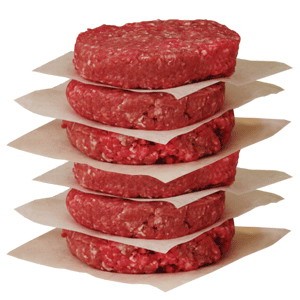
Elizabeth Weise writes in the USA Today today or tomorrow that a growing chorus of lawmakers, food-safety and consumer advocates are is demanding the six other non-O157 shiga toxin producing E. coli strains – the Big 6 – be declared illegal in meat as E. coli O157:H7 was in 1994. And edited version of the story is below.
In the absence of specific federal oversight, however, some companies have begun their own testing for these pathogens to protect consumers and their own bottom lines.
First out of the chute was Costco, which began testing its ground beef two months ago. Beef Products Inc., the nation’s largest supplier of lean beef, began testing on July 18.
There’s also movement in the produce and leafy greens world, where multiple producers and retailers have been testing for E. coli O157:H7 since the spinach .jpg) outbreak that almost wiped out the leafy green vegetable market in 2006.
outbreak that almost wiped out the leafy green vegetable market in 2006.
In the past few months, newly available tests have made it possible to check for a broader number of the microbes and they now include the harmful group of E. coli strains beyond O157:H7 known as the Big Six.
The reasons these bugs aren’t currently regulated are a mix of politics, money and plain biology — the bacteria are constantly evolving and turning up new and nastier forms, making writing rules about them a bit of a nightmare.
For example, the German E. coli variant that sickened more than 4,075 in Europe and killed 50, including one Arizona resident who traveled to Germany, wasn’t known before this spring (and is not part of the Big 6).
As it stands now, any meat that tests positive for the O157:H7 form of E. coli has to be removed from the market. But for other types of E. coli that are known to harm humans, it takes an illness to trigger a recall, says Nancy Donley, of STOP Foodborne Illness, a food-safety advocacy group started by parents who’ve lost children to these pathogens. "This is clearly not as it should be," she says.
The push to get these debilitating but non-O157:H7 forms of E. coli regulated has been coming for a long time. The Centers for Disease Control and Prevention has long required they be reported.
But as tests become available, some companies aren’t waiting for the feds to act. In the last six months, test kits for leafy greens have become available for the Big Six E. coli variants from IEH Laboratories in Lake Forest Park, Wash.; DuPont  Qualicon in Wilmington Del.; and BioControl Systems in Bellevue, Wash.; and others are in the works. For ground beef, they’re in late testing phase or became available in the past two months. In just the past two weeks, tests for the German E. coli O104:H4 variant hit the market.
Qualicon in Wilmington Del.; and BioControl Systems in Bellevue, Wash.; and others are in the works. For ground beef, they’re in late testing phase or became available in the past two months. In just the past two weeks, tests for the German E. coli O104:H4 variant hit the market.
IEH Laboratories has been testing for a broad range of these pathogenic E. colis for years now. "We had been finding a lot of these things in products right and left," says President Mansour Samadpour.
A table of non- E. coli O157 STEC outbreaks is available at http://bites.ksu.edu/nonO157outbreaks
